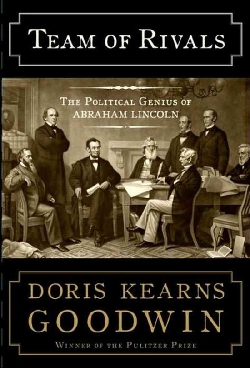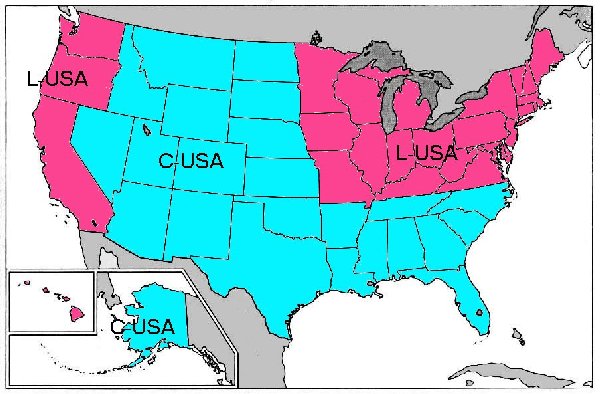BRYCE ON MANAGEMENT
- Like it or not, businesses must teach the young how to act.
To use this segment in a Radio broadcast or Podcast, send TIM a request.
"Most children are raised by amateurs, not professionals."
- Bryce's Law
Want to know what to expect of the work force in the years ahead? Look no farther than our schools or homes. Let me preface my remarks by saying that in addition to all of my other responsibilities, I was very active in my local Little League for a number of years where I served as coach, umpire, and on the local board of directors. Further, I have been very active locally in offering Masonic scholarships to High School students. In addition, my wife has been active in the local school system for the last ten years at the elementary, middle, and high school levels (this also included PTA and SAC). Although we probably won't win an award as the world's best parents, we made a point of becoming an important and influential part of our children's lives. We didn't take any special courses in parenting, we just got involved. But we are the exceptions as opposed to the rule.
Prior to World War II, the country was immersed in an economic depression which put a strain on families and disrupted our society. Everyone in a family was expected to pitch in and do their part in order to survive, this included going to school and their place of worship. Some families suffered severe hardships during this period causing children to drop out of school and go to work. They didn't drop out as some form of rebellion or protest, but to simply earn money to help support the family. Consequently, many earned nothing higher than a Junior High diploma which was prized by many families. The point is, there was a sense of family back then and the people's hunger built character. They understood the value of a dollar, worked hard and squandered nothing. It was this generation that got us through the war and propelled the country towards economic success in the latter part of the 20th century.
In the 1950's and 1960's, as the country was experiencing an economic boom, a parent normally stayed at home to manage the family, usually the wife. If a child had a problem, a parent was always home to tend to their needs. Children no longer had to drop out of school to support the family and our High Schools and Colleges swelled with students. The "baby boomers" were considered well adjusted and readily adapted to the work force. This generation saw us through the space race and the technology revolution which changed the face of corporate America.
But in the last three decades, we began to lose faith in our economy and our standard of living. As a result, both parents began to work inordinate hours and a generation gap began to emerge. Exhausted by their work, the parents would return home where the last thing they wanted to hear was their child's problems. Consequently, children became social outcasts in their own homes and often had to fend for themselves; they simply couldn't relate with their parents. Sure, the parents would sign their kids up for Summer Camp, Little League and Soccer, but this was viewed more as baby-sitting services as opposed to taking a true interest in the child's development. They would also give their kids television sets and video games to occupy their time.
Today, school teachers have become surrogate parents by default, something they weren't trained for, nor inclined to accept. Talk to a teacher and you will hear stories of lack of respect for authority, poor manners, and dysfunctional social intercourse. Children today no longer learn their values from their parents but rather from Hollywood. As young adults entering the work force, their work ethic, values, and behavior are noticeably different than the prior generation. There is no longer a sense of quality, service, or craftsmanship; just put in your time and collect a paycheck. This is all having an adverse effect on how we conduct business and the corporate culture.
Now, let me give you a the scary figure: probably 20%, or less, of today's graduating High School seniors are socially well adjusted.
Knowing this, what should you do as a manager?
In the past, if you were a new employee, it was assumed you knew how to manage your personal life and you were expected to adapt to the corporate culture. This is no longer true and presents a problem for managers. Younger employees today have problems managing money, dressing appropriately, and interpersonal relations and communications, not to mention alcohol, drugs, and sex. They are raw and rough. But are they salvageable? They better be, for your company's sake, as they represent tomorrow's work force.
Perhaps we can take a lesson from the military services here. The military is well aware they are not getting the "cream of the crop" when they take on new recruits. Many are social misfits coming from broken homes. As such, the military's initial role is to break the individual of bad habits and impose a new system of discipline and work ethic. Individualism is replaced by teamwork and, in the process, a sense of belonging and family is imposed. This is either readily accepted by the new recruit or they are drummed out of the service. Discipline, organization, teamwork, and a strong work ethic can have a dramatic affect on a drifting soul. By doing so, it can bring order to lives and a sense of purpose, something that perhaps was neglected at home.
Today's Drill Instructors and junior officers also find themselves as surrogate parents and are now instructed in counseling young soldiers. The boot camps of today are a lot different than what the country experienced during World War II, Korea, and Viet Nam. Yet, we are producing a fine class of soldiers which makes our country proud. In other words, they must be doing something right.
If we have learned anything from the military in this regard, it is that the times have changed and our employees today have different needs requiring a new type of manager who can adequately tend to them. And like today's Drill Instructors and school teachers, managers are finding themselves in the role of surrogate parents, like it or not. Managers bristle at this notion. After all, they want to get on with their business and do not want to be regarded as a baby-sitter. But the fact remains, home parenting skills are at an all-time low and to overcome this problem, someone has to assume the duty to compensate for this inadequacy. Again, the military readily understands this and has adapted accordingly. But can business?
Understand this, corporate America's "recruits" come predominantly from the colleges and universities whose purpose is not to teach social skills, but rather, to teach people how to learn. A college diploma most definitely does not mean the graduate is socially well-adjusted, but that he/she has learned to study and accept new ideas. If anything, the student's extracurricular activities tell more about a person's personality than the degree itself. For example, participation in team sports, club activities, or Greek life speaks volumes about a person's personality and social skills.
In the past, new corporate recruits underwent special training programs to learn how the company conducts business. Sales people in particular had to undergo rigorous training to learn how to present products and care for the customers. Workmen underwent training to learn how to build quality products. However, such programs have been slashed in recent times as a means for cutting costs (and will be the subject of a future paper).
There was also a period where mentors were assigned to new employees to chaperone them on their journey through the corporate world. Mentors were basically a "Big Brother/Sister" program where senior employees would offer sage advice to neophytes on adapting to the corporate world. But like the training programs, mentoring is also being phased out.
Although mentoring and training programs were intended to develop the employee's skills and effectiveness from a corporate perspective, neither dwelled on the personal problems of the employee.
Now that new employees are left to fend for themselves, a generation gap is emerging in business. Managers from just about every job segment are frustrated with new employees, and, likewise, new employees are frustrated with management. Whereas managers lament how little is accomplished by new employees, new employees complain how much time they are putting in at work. This highlights a significant difference between the generations: whereas the new employees are watching the clock, the managers are watching what is produced. The two are not synonymous, but nobody has taught the young employees this yet. To the "newbies," their time is what is important, regardless if they produce anything worthwhile or not; to the manager, it is just the opposite. Also, young people believe calling in sick is an acceptable form of behavior. Where did they learn all this? On their own. It is a sad state of affairs when the media has more influence over the values of our children than parents do. But when adults abdicate parenting to the media, it is not entirely surprising.
So, what is needed? More training? Mentoring? Nope. Just some parenting. The sooner corporations realize this, the sooner they can begin to develop mature and responsible employees. Again, this is why the military now teaches its Drill Instructors basic counseling techniques, so they can help new recruits find their way through life and become a good soldier. It is most definitely not "baby-sitting" but, rather, a recognition that parents have dropped the ball in their child's development and someone has to pick up the pieces in order for the newbie to realize their potential.
I do not claim to have a Ph.D. in parenting, but as I see it there are three primary duties a parent needs to inculcate:
* Role Model - first, a parent has to be a good role model with attributes their subordinates want to aspire to attain. Role models are respected for their authority and become a highly credible source of information and inspiration.
* Teacher - second, a parent has to be able to teach, not just academic lessons but those of life; e.g., morality, socialization, even finances (e.g., balancing a checkbook, life insurance, etc.). It is the teacher who establishes the rules and regulations of the classroom and, as such, is also the disciplinarian.
* Guidance Counselor - third, parenting includes guiding others on their path through life, explaining options and making recommendations.
Very important, a parent has to recognize they won't have all of the answers, but should know how to point someone in the right direction to get the answers they need.
Above all else, a parent has to care about the welfare of their offspring. I am not suggesting corporate parents love their children like biological parents, but they need to invest time in the person, believe in the person, and motivate them accordingly, whether through kindness or a good swift kick in the rear. The corporate parent has to also know when their work is complete and allow the offspring to move on to the next stage of their corporate life.
The military has the advantage of written contracts and boot camps to indoctrinate new recruits. Perhaps a corporate boot camp could be devised and teach the same lessons as found in the military, such as:
* Cause and effect, e.g., if you make a mistake, you know you will be penalized accordingly.
* The value of good workmanship and its impact on others.
* How to give and take an order.
* Discipline and code of conduct.
* Teamwork.
CONCLUSION
Companies today are at a loss coping with the newest generation of workers. What they don't realize is, it will get worse before it gets better. Since most biological parents are content with allowing others to teach their children the necessary values in life, teachers, the military and corporations are forced to pick up the slack, like it or not. The sooner we admit this, the sooner we can address how to remedy the situation. Whether this involves one-on-one counseling or a boot camp type of environment, something has to be done to teach our newest wave of workers the proper values to succeed in business and in life.
Let me leave you with a real-life story on parenting in the workplace. Some time ago I was visiting with a CIO in Columbus, Ohio who took me on a tour of his facility. Along the way, we happened upon a young programmer who was new to the company. Frankly, he looked a little wet behind the ears and had long hair over his collar. After the CIO introduced me to the young man, he instructed him to go get a haircut. The young programmer, shot back indignantly, "You can't say that to me!"
The CIO turned calmly but deliberately to the programmer, and said, "Yes I can. Watch," then pointing to his mouth, "Get a haircut. Now!"
The programmer backed down and, to his credit, dutifully got a haircut.
I had just witnessed a little "Parenting Management" in action. The CIO exercised his authority and had quickly instructed the newbie on one of the rules to be observed in the workplace. The programmer's biological parents hadn't instructed him properly, now it defaulted to his corporate parent.
"Parenting Management" - Just remember, you heard it here first.
First published: October 17, 2005
Keep the Faith!
Note: All trademarks both marked and unmarked belong to their respective companies.
Copyright © 2017 by Tim Bryce. All rights reserved.
NEXT UP: THE DEATH OF COMMON COURTESY - A little sincerity can go a long way.
Listen to Tim on
WZIG-FM (104.1) in Palm Harbor,FL;
KIT-AM (1280) in Yakima, Washington
"The Morning News" with hosts Dave Ettl & Lance Tormey (weekdays. 6:00-9:00am Pacific). Or tune-in to Tim's channel on
YouTube. Click for
TIM'S LIBRARY OF AUDIO CLIPS.
 I've been bumping into a lot of younger people lately; young men in their early to mid-20's who have been asking me for advice on a variety of issues as they begin their careers. Basically, I tell them to start a life insurance policy, write a will, how to dress, and basic social amenities such as how to greet someone and tell a joke. More importantly I stress upon them the need to network with their contemporaries.
I've been bumping into a lot of younger people lately; young men in their early to mid-20's who have been asking me for advice on a variety of issues as they begin their careers. Basically, I tell them to start a life insurance policy, write a will, how to dress, and basic social amenities such as how to greet someone and tell a joke. More importantly I stress upon them the need to network with their contemporaries. Tim Bryce is a writer and the Managing Director of M&JB Investment Company (M&JB) of Palm Harbor, Florida and has over 40 years of experience in the management consulting field. He can be reached at timb001@phmainstreet.com
Tim Bryce is a writer and the Managing Director of M&JB Investment Company (M&JB) of Palm Harbor, Florida and has over 40 years of experience in the management consulting field. He can be reached at timb001@phmainstreet.com The other day we had a new FedEx driver make a delivery at our office in Palm Harbor. Since I happened to be by the front door, I opened it and watched him approach. He wore a scowl on his face as if he had been having a bad day. I opened the door, greeted him warmly, shook his hand and asked how his day was going. As I signed for the delivery, the driver looked at me strangely. I asked him if there was a problem. He said, No, it was just that I was the first person that day to be friendly to him and actually ask how he was doing. He said in most companies he visits he's pretty much taken for granted and treated rudely.
The other day we had a new FedEx driver make a delivery at our office in Palm Harbor. Since I happened to be by the front door, I opened it and watched him approach. He wore a scowl on his face as if he had been having a bad day. I opened the door, greeted him warmly, shook his hand and asked how his day was going. As I signed for the delivery, the driver looked at me strangely. I asked him if there was a problem. He said, No, it was just that I was the first person that day to be friendly to him and actually ask how he was doing. He said in most companies he visits he's pretty much taken for granted and treated rudely.

 As many of you know, I have discussed the adverse effects of technology on numerous occasions. Specifically, I am talking about such things as mobile phones, video games, tablets and personal computers, those devices we embrace in the daily affairs of our lives. I have argued there is no documented proof it improves productivity (at least not with the U.S. Department of Labor), and that it affects our socialization skills particularly in the area on interpersonal relations. Such technology may allow us to express our creativity faster, to quickly access information, to communicate with anyone on the planet and share such things as notes and photos, but there is nothing to substantiate it enhances our ability to think. If anything, it diminishes the use of the brain. For example, many people can no longer perform basic math without the assistance of an automated calculator; We cannot communicate except by constant text messaging; We no longer believe we can compose letters or essays without a word processor, etc. It should come as no small wonder to watch an average office come to a complete standstill when the power is cutoff. Studies have also shown that extensive use of such devices actually lowers IQ. As Hicks points out in his book, "The Digital Pandemic," technology has the ability to alter our minds; that it can assume the same robotic mannerisms as the technology we use. This means we are subliminally adjusting our lifestyles to adapt to technology.
As many of you know, I have discussed the adverse effects of technology on numerous occasions. Specifically, I am talking about such things as mobile phones, video games, tablets and personal computers, those devices we embrace in the daily affairs of our lives. I have argued there is no documented proof it improves productivity (at least not with the U.S. Department of Labor), and that it affects our socialization skills particularly in the area on interpersonal relations. Such technology may allow us to express our creativity faster, to quickly access information, to communicate with anyone on the planet and share such things as notes and photos, but there is nothing to substantiate it enhances our ability to think. If anything, it diminishes the use of the brain. For example, many people can no longer perform basic math without the assistance of an automated calculator; We cannot communicate except by constant text messaging; We no longer believe we can compose letters or essays without a word processor, etc. It should come as no small wonder to watch an average office come to a complete standstill when the power is cutoff. Studies have also shown that extensive use of such devices actually lowers IQ. As Hicks points out in his book, "The Digital Pandemic," technology has the ability to alter our minds; that it can assume the same robotic mannerisms as the technology we use. This means we are subliminally adjusting our lifestyles to adapt to technology. I am an avid fan of the Firesign Theatre, a comedy troop which came to light in the late 1960's. Their humor was considered rather avant-garde even for this turbulent period in our history. You couldn't find them on television or in the movies, and rarely would their comedy be broadcast over the radio waves. Instead, it was primarily distributed in vinyl form (good old 33rpm records) and appealed primarily to college students who treated it like an underground movement. Today, their comedy has attained cult status, not just for its humor but as a great parody of the times and their prophetic vision of the future. Their first album, "Waiting for the Electrician or Someone like Him" (1968) includes a satirical tale of the future based on the values of the psychedelic sixties. In particular, there is one track involving two police officers of the future traveling together in their patrol car. As part of their duties, they have to check to see if all of the citizens are "groovy." If a citizen looks suspicious, the police would stop them, ask them some pointed questions to determine their grooviness, what drugs they were carrying, as well as to check their clothing and body paint. If the citizen wasn't compliant, he/she would be "taken away for regrooving" which meant a massive reorientation to bring them up to date with the times. In the story, the people become so overtly groovy that underground study cells begin to emerge whereby students began to read books and discuss major issues of the day, all to the horror of their parents and teachers.
I am an avid fan of the Firesign Theatre, a comedy troop which came to light in the late 1960's. Their humor was considered rather avant-garde even for this turbulent period in our history. You couldn't find them on television or in the movies, and rarely would their comedy be broadcast over the radio waves. Instead, it was primarily distributed in vinyl form (good old 33rpm records) and appealed primarily to college students who treated it like an underground movement. Today, their comedy has attained cult status, not just for its humor but as a great parody of the times and their prophetic vision of the future. Their first album, "Waiting for the Electrician or Someone like Him" (1968) includes a satirical tale of the future based on the values of the psychedelic sixties. In particular, there is one track involving two police officers of the future traveling together in their patrol car. As part of their duties, they have to check to see if all of the citizens are "groovy." If a citizen looks suspicious, the police would stop them, ask them some pointed questions to determine their grooviness, what drugs they were carrying, as well as to check their clothing and body paint. If the citizen wasn't compliant, he/she would be "taken away for regrooving" which meant a massive reorientation to bring them up to date with the times. In the story, the people become so overtly groovy that underground study cells begin to emerge whereby students began to read books and discuss major issues of the day, all to the horror of their parents and teachers. I hate to forget a person's name. There is probably nothing more rude in business than to forget someone's name, particularly if you have had to deal with them one-on-one. Years ago, when I was just starting out in business, I met a gentleman from Worcester, Massachusetts who attended one of our training courses in Cincinnati. He was a nice guy and I actively worked with him during the class. Two weeks later, we held a customer conference in French Lick, Indiana where I happened to run into him again, this time on the golf course. My mind went totally blank as to what his name was, thus creating an awkward moment as we greeted each other (he, of course, remembered my name, but I was blocked). After some clever maneuvering, I finally got him to say his name which I instantly recognized. However, to make matters worse, I mispronounced the name of the town he is from which, if you are not from Massachusetts, is easy to butcher (look up "Worcester" in the dictionary and you'll see what I mean). All in all, I didn't score well in front of my customer that day. Consequently, I was determined not to let this happen again.
I hate to forget a person's name. There is probably nothing more rude in business than to forget someone's name, particularly if you have had to deal with them one-on-one. Years ago, when I was just starting out in business, I met a gentleman from Worcester, Massachusetts who attended one of our training courses in Cincinnati. He was a nice guy and I actively worked with him during the class. Two weeks later, we held a customer conference in French Lick, Indiana where I happened to run into him again, this time on the golf course. My mind went totally blank as to what his name was, thus creating an awkward moment as we greeted each other (he, of course, remembered my name, but I was blocked). After some clever maneuvering, I finally got him to say his name which I instantly recognized. However, to make matters worse, I mispronounced the name of the town he is from which, if you are not from Massachusetts, is easy to butcher (look up "Worcester" in the dictionary and you'll see what I mean). All in all, I didn't score well in front of my customer that day. Consequently, I was determined not to let this happen again. Although originally plotted in the 1760's to settle a border dispute, the Mason-Dixon Line was better known as the boundary between the slave states of the South and the anti-slave states in the North. As such, it became symbolic of the cultural differences which led to the American Civil War (or as we prefer to call it in the South as "The War between the Confederate States of America and the United States of America"). Nonetheless, our current political differences are so pronounced, I wonder if it's time to plot a new type of Mason-Dixon Line to divide the country over ideological lines, Liberal versus Conservative. After all, the division in this country is only going to get worse, not better, regardless of what happens in the 2018 election.
Although originally plotted in the 1760's to settle a border dispute, the Mason-Dixon Line was better known as the boundary between the slave states of the South and the anti-slave states in the North. As such, it became symbolic of the cultural differences which led to the American Civil War (or as we prefer to call it in the South as "The War between the Confederate States of America and the United States of America"). Nonetheless, our current political differences are so pronounced, I wonder if it's time to plot a new type of Mason-Dixon Line to divide the country over ideological lines, Liberal versus Conservative. After all, the division in this country is only going to get worse, not better, regardless of what happens in the 2018 election. Whether we like it or not, our lives are greatly impacted by our financial credit scores. If you have a good credit rating, lending institutions are more than happy to loan you the money to buy a house, a boat, a car, help you start a business venture, or whatever. If you have a bad rating, you're basically stuck in Nowheresville.
Whether we like it or not, our lives are greatly impacted by our financial credit scores. If you have a good credit rating, lending institutions are more than happy to loan you the money to buy a house, a boat, a car, help you start a business venture, or whatever. If you have a bad rating, you're basically stuck in Nowheresville. Over the years I have had the pleasure of watching several fine young men grow into adulthood. Inevitably, they become serious about a woman and consider marriage. On more than one occasion I have been asked what they should be looking for in a woman, e.g., a potentially good mother, cook, sex partner, or whatever. I flippantly advise them to "check her teeth," which is an expression I picked up from a horse trainer years ago. Now, please, I do not mean any disrespect to women by this remark. In fact, I recommend the same thing to young women considering a husband, "check his teeth."
Over the years I have had the pleasure of watching several fine young men grow into adulthood. Inevitably, they become serious about a woman and consider marriage. On more than one occasion I have been asked what they should be looking for in a woman, e.g., a potentially good mother, cook, sex partner, or whatever. I flippantly advise them to "check her teeth," which is an expression I picked up from a horse trainer years ago. Now, please, I do not mean any disrespect to women by this remark. In fact, I recommend the same thing to young women considering a husband, "check his teeth." I recently saw a picture of a boy who had been running through his house with a fork and somehow tripped and got it stuck in his nose. Perhaps you've seen the photo yourself on the Internet. It looked pretty painful, funny but painful. It occurred to me this is how changes begin to be implemented in our society. I'm sure this incident resulted in a costly hospital bill to have the fork surgically removed from the boy's nose, along with some plastic surgery, and in order to avoid a costly medical bill, the family will inevitably try to sue someone, such as the manufacturer of the fork. If successful, we will probably see some legislation emerge requiring fork manufacturers to change the design and create a "safety fork," imprint a safety warning on all forks, e.g.; "Warning! Use of this fork may be hazardous to your health," and there will probably be a recall on all existing forks. All this, because the parents were too stupid to supervise a five year old.
I recently saw a picture of a boy who had been running through his house with a fork and somehow tripped and got it stuck in his nose. Perhaps you've seen the photo yourself on the Internet. It looked pretty painful, funny but painful. It occurred to me this is how changes begin to be implemented in our society. I'm sure this incident resulted in a costly hospital bill to have the fork surgically removed from the boy's nose, along with some plastic surgery, and in order to avoid a costly medical bill, the family will inevitably try to sue someone, such as the manufacturer of the fork. If successful, we will probably see some legislation emerge requiring fork manufacturers to change the design and create a "safety fork," imprint a safety warning on all forks, e.g.; "Warning! Use of this fork may be hazardous to your health," and there will probably be a recall on all existing forks. All this, because the parents were too stupid to supervise a five year old. For some reason, Americans believe there is a legal requirement to separate church and state in the US Constitution. It is now commonly believed organized religion has no business in the workings of the state. The reality is, there is no such stipulation whatsoever in the Constitution. There is only a couple of references to religion in our governing documents. The first is in Article 6 of the Constitution whereby "...no religious Test shall ever be required as a Qualification to any Office or public Trust under the United States." The second reference is in Amendment One of the Bill of Rights whereby, "Congress shall make no law respecting an establishment of religion, or prohibiting the free exercise thereof;..." I cannot speak for the governing documents of the various states and territories, but as far as the Constitution is concerned, that is all there is pertaining to religion.
For some reason, Americans believe there is a legal requirement to separate church and state in the US Constitution. It is now commonly believed organized religion has no business in the workings of the state. The reality is, there is no such stipulation whatsoever in the Constitution. There is only a couple of references to religion in our governing documents. The first is in Article 6 of the Constitution whereby "...no religious Test shall ever be required as a Qualification to any Office or public Trust under the United States." The second reference is in Amendment One of the Bill of Rights whereby, "Congress shall make no law respecting an establishment of religion, or prohibiting the free exercise thereof;..." I cannot speak for the governing documents of the various states and territories, but as far as the Constitution is concerned, that is all there is pertaining to religion.